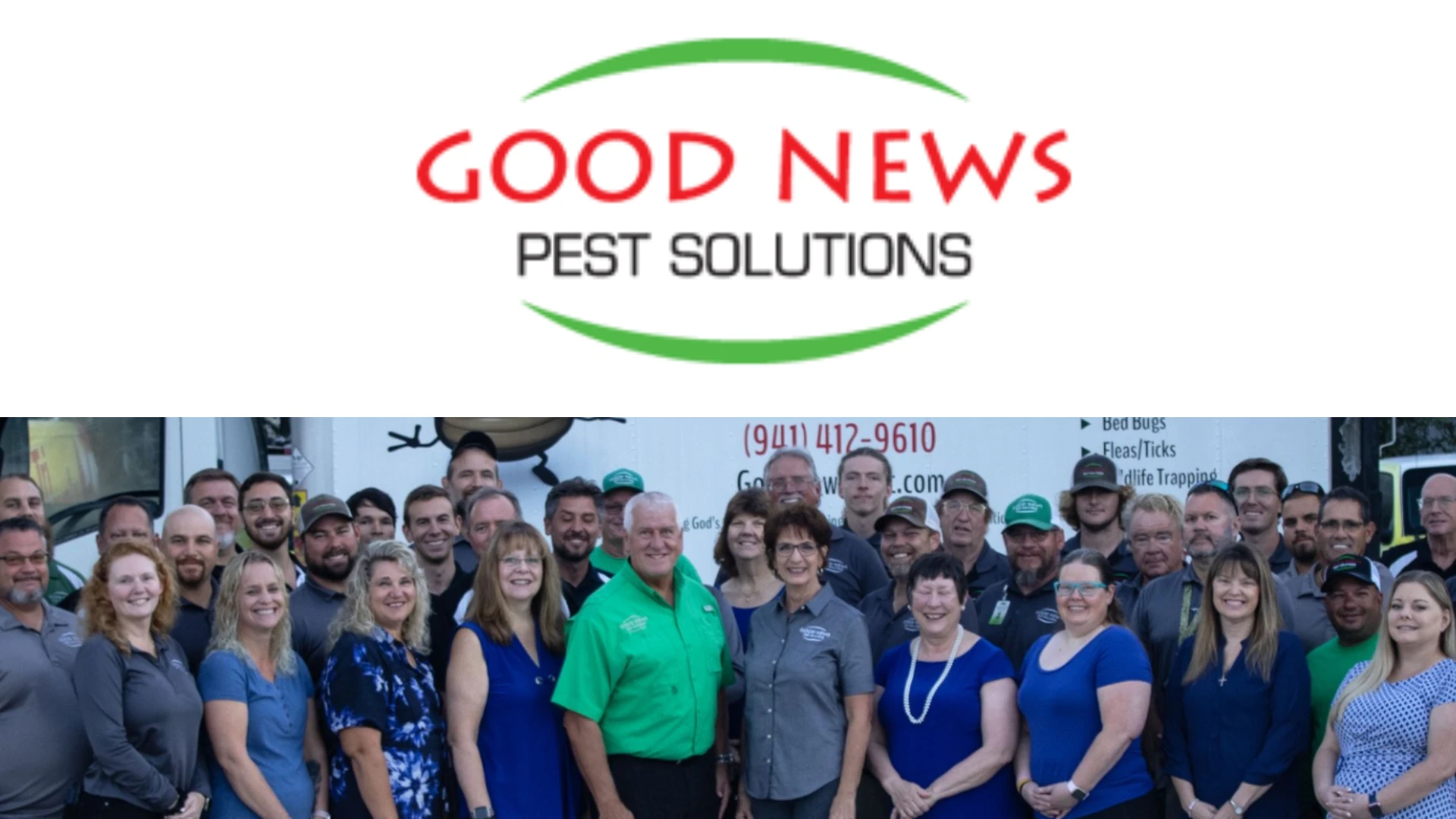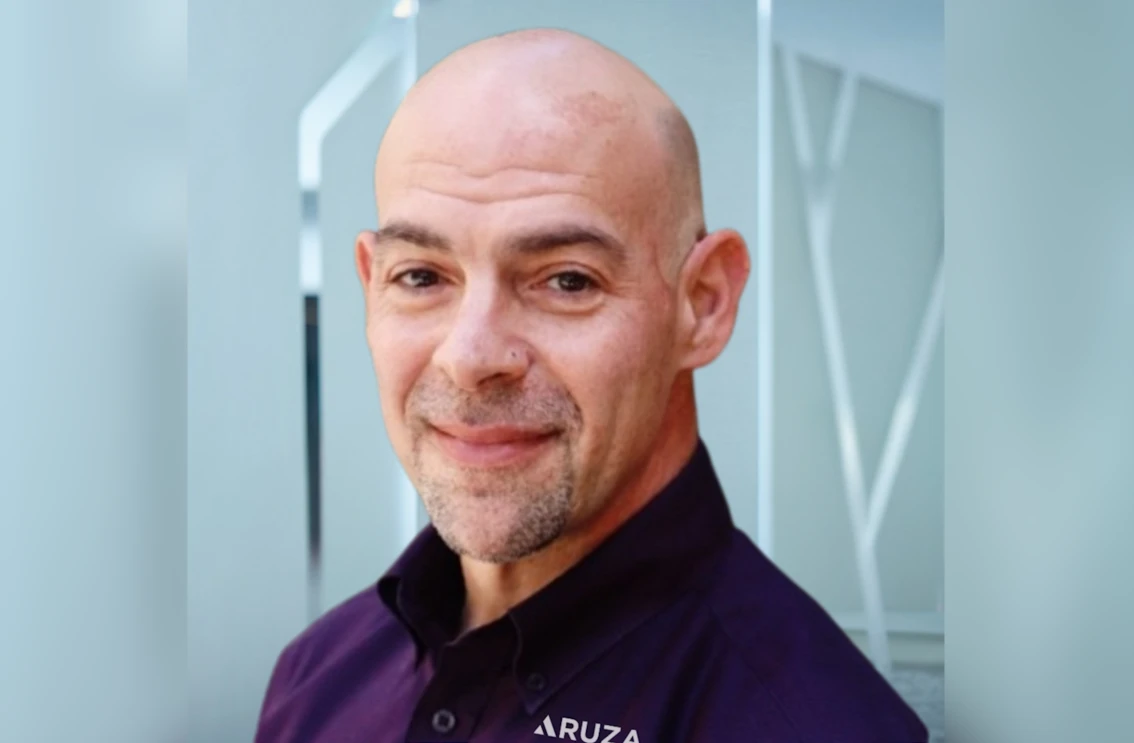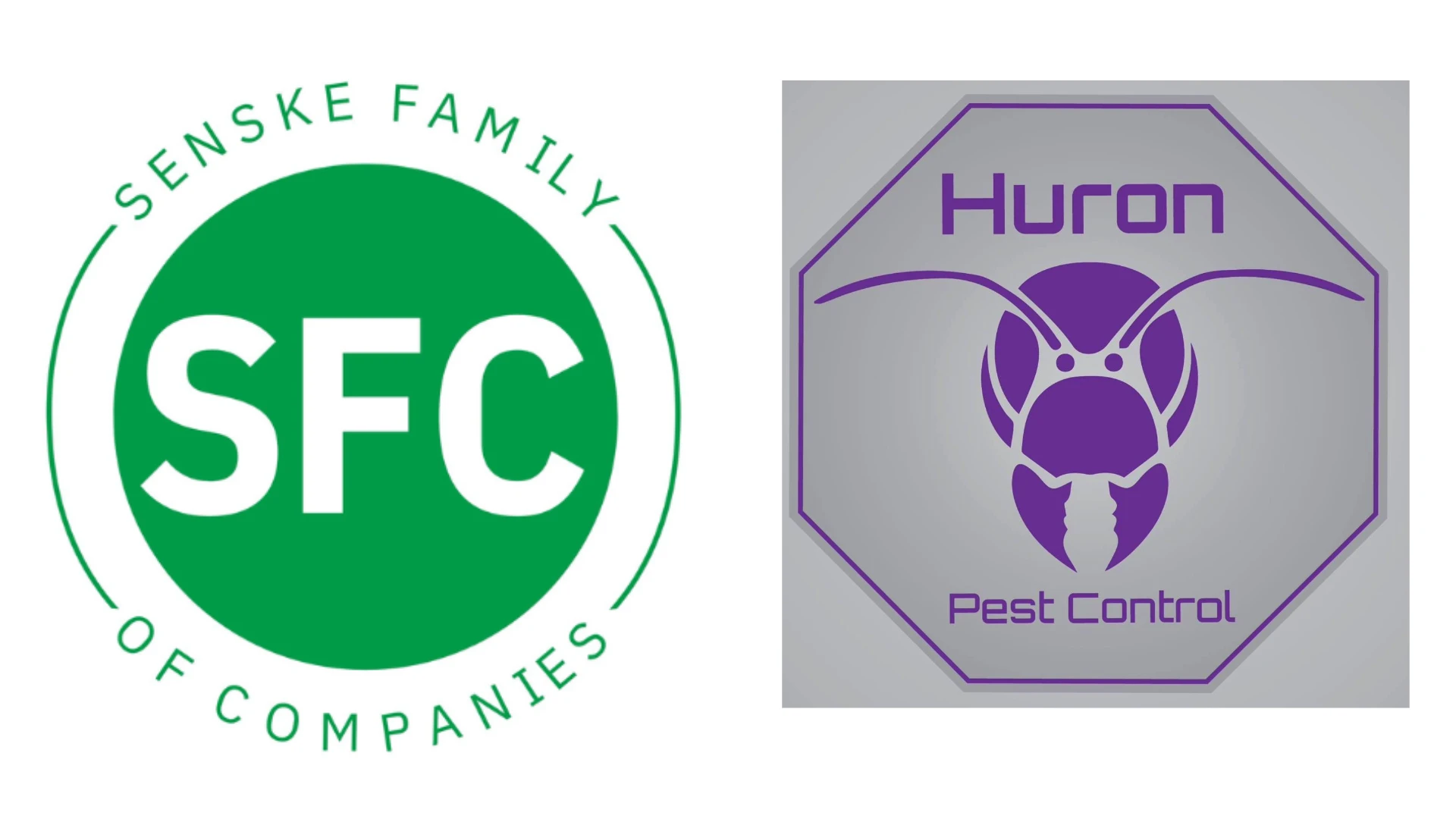
Donnie Shelton signed the papers to purchase Triangle Pest Control in a Wendy’s dining room. It was 2006, and the Air Force veteran, aircraft mechanic and software engineer had zero experience in the pest control industry. Before Shelton bought the company, then known as Mike’s Pest Control, it was generating $12,000 in annual service revenue from 23 accounts.
Today, Triangle, based in Raleigh, N.C., has grown into a $8 million company with approximately 60 employees. Shelton is also the CEO of Coalmarch, a $5 million digital agency servicing pest control and lawn accounts. So, how did Shelton, a self-described “guy that came from nowhere,” become an industry leader?
Learning to Fly
Shelton was born in Stuart, Va., and grew up in Mayodan, N.C., a small textile town where “everyone goes to high school, graduates and works for the mill, and that’s your life,” he said.
“When I was in high school, [I was a] complete knucklehead,” he recalled. “I mean, I graduated high school with a 1.75 GPA. If there was anyone signed up for Loser of the World, that would be me.”
Shelton graduated high school early and headed straight into the Air Force. His mother, Evon, signed him in, because at 17, joining the Armed Services requires parental consent. Once enlisted, Shelton became a crew chief, “which is basically an aircraft mechanic,” he said. As he started working on airplanes, something in him changed.
“I got around airplanes, and I really got motivated,” he said.
Shelton began to envision a different life for himself, one where he was a pilot. But with a low high school GPA, no college education and a small-town background, he said, “The chances of me becoming a pilot would be like the chances of getting struck by lightning. It just was a pie-in-the-sky dream. I had so much to do.”
He started by working seven days a week while attending a community college full-time near Travis Air Force Base in California, where he was stationed.
“I didn’t have a day off except for Christmas and Thanksgiving,” he recalled. “Once I realized this is what I wanted to do, I was all in, 100 percent.”
The relentless schedule paid off: Shelton earned straight A’s for the first time in his life. He lasered his focus on the Air Force Academy, where, if accepted, he could leave the enlisted ranks and attend officer training school, inching him one step closer to his dream of becoming a pilot. He received a congressional recommendation, passed the physical fitness test and waited to hear back from the academy.
“And I failed,” Shelton said. “They sent a letter, and they’re like, ‘Thanks, but no thanks.’ I didn’t even get into the prep school. … They looked at my high school grades, and they’re like, ‘No.’ It was a huge blow.”
It was the first time in his life that Shelton had truly given his all, only for it to not be good enough. It took several weeks for him to move past the disappointment, but once he did, he said, “OK, that door’s shut. What other doors can I look at?”
“I wasn’t going to let it stop me,” Shelton said.
He continued attending college, the first in his family to do so, eventually transferring to North Carolina State University. He interviewed with different Air Force Reserve units and was told he needed a technical degree and a GPA over 3.8. “So that’s what I did,” Shelton said. He earned his bachelor’s degree in computer science and was hired by a unit in Goldsboro, N.C., where he attended officer training school and then pilot training.
In the end, Shelton said he’s glad he experienced failure early in life. And it’s why his proudest career moment doesn’t have anything to do with the pest control industry. It was finally getting his pilot’s wings.
“Ten years after I set that goal, on my birthday, I became a pilot, and my mom and my wife (Emily) pinned my wings on,” said Shelton, who retired from the Air Force Reserve in February. “And they were the only two that knew that it took me 10 years to get there. That was a big moment for me, because it wasn’t the fact that I was a pilot; it was the fact that it didn’t come easy for me. I had to fail multiple times to get there. And I think because of that, it taught me a lot. And all the sacrifice was worth it in that moment.”
From Tech to Pests
After flying in the Air Force for three years and joining the Reserves, Shelton put his computer science degree to work as a software developer for Progress Energy in Raleigh. But he was increasingly intrigued by the business world, with dreams of becoming an entrepreneur, so much so that he applied, and was accepted, to Duke University’s MBA program.
“Duke University sends me this bill for $90,000,” Shelton said. “And I’m like, do I really want to do this? Because that’s a lot of money!”
He started researching lucrative industries and landed on pest control.
“I’m like, hey, this business is not sexy, but it’s a great business,” he said. “So I literally picked it based on business performance. It certainly wasn’t loving bugs. I mean, don’t get me wrong, I don’t hate them, but that wasn’t what attracted me to the industry. It was really researching and looking at the business itself.”
Shelton decided he would defer Duke and give being a business owner a shot. If that didn’t pan out in the first year, he would call the business quits and go back to school to earn his master’s degree.
He joked, “You can imagine the faces of my in-laws. Here I am, chief technology developer at Progress Energy. I’m a pilot, too, in the Air Force, and we’re all sitting around the dinner table, and I’m like, I’m going to own a pest control company.”
After one year of owning Triangle, Shelton decided to defer Duke for another year. After his second year in business, he told the school, “I’m not coming.”
“And I never looked back,” he said. “I’m so glad I did not.”
Paying It Forward
Shelton may have entered the pest control industry by chance, but he said it’s the people who have kept him in it for the long-term. “I absolutely love the people in our industry: the people I work with, people in the industry, our customers,” he said. “It’s really what has kept me in it. They’re good, honest people in our industry.”
He credits industry leaders such as Bobby Jenkins of ABC Home & Commercial Services and Dave Boose of PestMasters Termite & Pest Control with helping him along the way.
“One of the things I really like about our industry is that people are very open and are willing to help,” Shelton said.
Boose said he met Shelton at a North Carolina pest control conference right after he had opened Triangle. Shelton asked Boose if they could stay in touch, and the veteran PMP said yes.
“Many people have asked me that question, and most never followed it up,” Boose said. “I remember thinking, this guy is different; he means it. A month later, Donnie called to see if we could set up a meeting. That resulted in he and I meeting in person for a full day once a month for the next five years.”
While at first the meetings consisted mostly of Boose giving Shelton advice on his newly chosen industry, that quickly changed into what Boose described as a “mutually rewarding experience.”
“I frankly couldn’t believe his tenacity and his drive,” Boose said. “After our monthly meetings, I always felt like I learned more from him than I gave.”
The assistance and advice Shelton received early in his career is one of the reasons why he now co-hosts the PMP Industry Insiders podcast with Dan Gordon.
The show, born during the lockdown era of COVID-19, gives listeners in the pest control and lawn industries tips and information to grow their businesses.
“I don’t make any money off the podcast, but I certainly enjoy doing it, because I feel like it’s an easy way to give back,” Shelton said. “Because I can tell you, the things I learned in college and even in military leadership school did not apply once I started all of this.”
He credits his co-workers and industry colleagues as the reason Triangle has become so successful.
“I should not and will not take any of the credit whatsoever,” Shelton said. “I truly do have great teams at both businesses. They are good people. They’re loyal, they’re committed, and I mean that. They are super good folks. If anything, I started laughing when I heard that I’d gotten this award. Nobody becomes a leader without people, you know. So really, they should be the ones getting the award, not me.”
Committed to Group Success

One strategy Shelton has employed over the years is committing to his employees’ growth. He started Triangle out of his garage as the company’s owner, but also the technician, office manager and marketing guru all in one. After three months, the company grew enough that he could move into an office and start adding to the team. Shelton hired a technician, then a customer service rep, and then a manager.
Now, he said, “all of my managers at both companies started on the front lines. And I’m a huge believer in that (approach) because that’s what I did.”
“I want to have businesses where I provide opportunities for people who want to work and who are committed and who are loyal,” said Shelton. “I want to give them a place to go where they can absolutely move up. And so I don’t believe in outside leadership. That doesn’t mean I wouldn’t bring someone in if I needed to, but I always look inside, and I want to grow my people first.
“I think that’s one of the reasons that I’m able to get really good people,” he added. “And I think that’s one of the reasons that they’re very loyal, because I buy into them 100 percent.”
Acquiring an Agency
Shelton used his technology background to take another big step in his career: acquiring Coalmarch in 2013.
Shelton entered the pest control industry with a background in high-tech environments. He quickly realized his new industry was not quite as technologically advanced, he said.
Shelton started using search optimization to boost his business listings on Google, so Triangle was consistently showing up in the top three search results in the Raleigh area.
“This was back in the good old days,” he explained. “It’s more difficult to do it these days, but I grew the business exponentially online when I first started, which was very different than most people. Most people were just doing Yellow Pages, and they were growing their typical five and 10 percent. We were growing at 300 percent, just because it was just a platform that people were not paying attention to. Long story short, I had figured out how to win online in our industry.”
As Triangle grew, Shelton expanded his team, but marketing was the last responsibility he let go of as a manager.
“I just kept getting frustrated, because I would hire an SEO firm, they would start off great, and after six months, they just would drop off,” he said. “I just kept seeing this recurring problem of these SEO companies who don’t understand our industry and don’t put enough time and effort to really get great results. And I thought, hey, I’m not the only person who’s struggling with this.”
Shelton knew he had the skills to run a solid business. He decided to purchase a digital agency and focus solely on pest and lawn accounts. He acquired Coalmarch in 2013.
“I implemented procedures and basic business management,” he said. “And we fired some big customers. We had RCA Records as a client; we had Duke University. We had these really big clients. And I fired them all and said we’re just going to do pest and lawn, because that’s what we know. And that’s how I got started.”
When Shelton acquired Coalmarch, its annual revenue was $600,000. He projects it will be close to $5 million this year.
Despite juggling two companies, Shelton finds balance in his schedule for fun. He owns a jet and flies often. In his free time, he enjoys traveling and spending time with his wife Emily and their four children, Caroline, 17, Maren, 15, Blake, 12, and Owen, 9.
“I love flying. I love my family. And I love redneck stuff,” he said, which includes hunting, fishing and riding tractors and UTVs.
Qualities of a Leader
Over the years, Shelton has learned enough about business and leadership that he’s penned two books: “Grow! How to Rapidly and Profitably Grow Your Service Company Online,” and “Build: How to Create a Phenomenal Team for Your Service Company.”
In line with the title of his first book, a solid leader, he said, needs to be able to grow along with his or her team.“You’ve got to always reinvent yourself,” said Shelton.
Owners face the common pitfall of feeling like they’ve made it, he said, so they stop growing.
“And then the business starts flatlining or not growing as fast,” Shelton said. “It’s just that constant — I don’t want to call it a grind, because it’s kind of fun, but it’s definitely a challenge. This is the challenge that never goes away, and I don’t know that you ever fully overcome it. I think it’s just the chase.”
Both Boose and podcast co-host Gordon described Shelton as disciplined, and even intense.
“In my opinion, Donnie is successful because he is able to combine his skills and training as an Air Force jet pilot with his analytical skills as a computer code writer,” said Boose. “What makes it work is his self-discipline and dogged determination to get things done.”
Gordon credited Shelton for his understanding of “creating an environment of accountability” at work.
Strong leaders must also be resilient, Shelton said. He thinks back to when the door was slammed in his face at the Air Force Academy. “When everyone else is telling you why you can’t do it, you’ve got to find the reason how you can do it,” he said. “You’ve got to be able to move forward no matter what the circumstances are.”
Leaders must own the business’ problems and the solutions. “Don’t make excuses,” said Shelton. “Don’t be a victim. Don’t look at other people and blame them. You immediately blame yourself. You’ve just got to completely own it. Now, that doesn’t mean if things are going well that you’ve got to own that, too. Absolutely give credit where credit is due. But when things aren’t going great, the buck stops with you.”
A good leader is continuously chasing excellence and striving to be the best he or she can be, and not just in business, Shelton said. “I want to be the best dad I can be. I want to be the best business owner I can be. I want to be the best pilot I can be,” he said. “And when I say the best, I’m not talking about competing with other people. I’m talking about myself.”
WANT MORE?
Enter your email to receive our newsletters.

Explore the October 2021 Issue
Check out more from this issue and find your next story to read.
Latest from Pest Control Technology
- Webinar: Employee Incentives — Going Beyond the Annual Raise
- Pest Control Companies Helping Neighbors in Need Eradicate Bed Bugs
- Why Does Marketing Feel So Opaque?
- How Did This Pest Get Its Name?
- Rose Pest Solutions Honors Top Performers with Annual Chief’s Club Awards
- Doug Foster on Termite Control Equipment, Resources
- Pest Control Consultants Acquires EcoGuard Pest Control
- Pest Index Increased 9 Percent YOY in February






